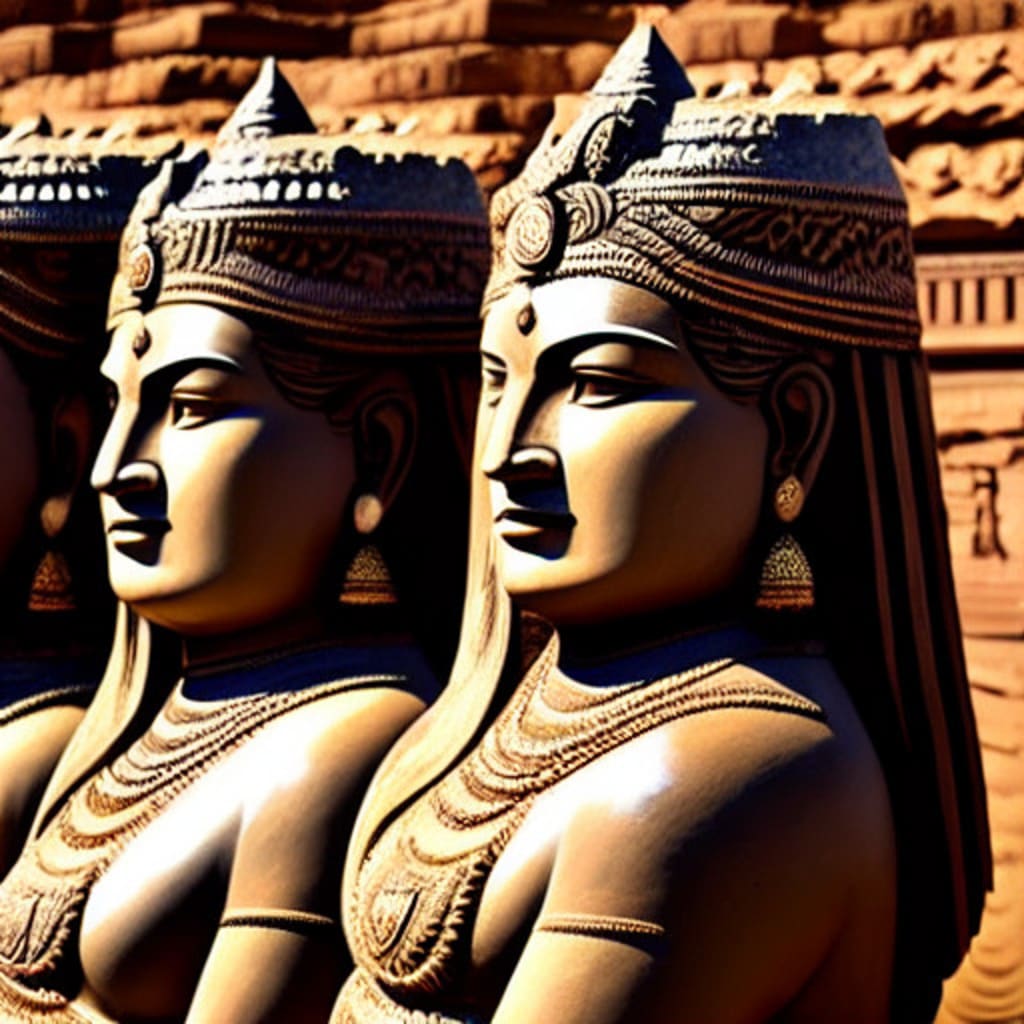The Rise and Fall of the Mauryan Empire: An Epic Tale of Power and Conquest
An Epic Tale of Power and Conquest

The Mauryan Empire was one of the most powerful empires in ancient India, and it had a profound impact on the country's history and culture. Founded by Chandragupta Maurya in the 3rd century BCE, the Mauryan Empire expanded rapidly, conquering much of the Indian subcontinent and establishing a vast and powerful empire. However, the empire eventually declined and collapsed, leaving behind a legacy that would shape Indian history for centuries to come.
The Mauryan Empire was founded by Chandragupta Maurya, who overthrew the Nanda dynasty and established himself as the ruler of a large part of northern India. Chandragupta was a skilled military strategist and conquered several neighboring kingdoms, expanding his empire and establishing a powerful military presence in the region. He was succeeded by his son Bindusara, who continued to expand the empire, conquering much of central and southern India.
However, it was Bindusara's son, Ashoka, who would become the most famous ruler of the Mauryan Empire. Ashoka is known for his conquest of the Kalinga kingdom, which resulted in one of the bloodiest battles in Indian history. The brutality of the battle had a profound impact on Ashoka, and he subsequently embraced Buddhism, renouncing violence and promoting peace and non-violence throughout his empire. Ashoka's reign is considered a golden age of the Mauryan Empire, and he is revered as one of the greatest emperors in Indian history.
After Ashoka's death, the Mauryan Empire began to decline. The empire faced a number of challenges, including invasions from the Greeks and the Bactrians, as well as internal rebellion and unrest. The last Mauryan emperor, Brihadratha, was assassinated by his own general, Pushyamitra Shunga, who established the Shunga dynasty and ended the Mauryan Empire.
Despite its eventual decline and collapse, the Mauryan Empire left behind a lasting legacy in Indian history. The empire was known for its administrative prowess and is credited with establishing a strong and efficient administrative system in India. The Mauryan rulers were also known for their patronage of the arts and architecture, and several famous monuments and structures, including the Sanchi Stupa and the Ashoka Pillar, were built during their reign.
The Mauryan Empire also had a profound impact on Indian culture and religion. Ashoka's conversion to Buddhism had a lasting impact on the religion, and he is credited with spreading Buddhism throughout the Indian subcontinent and beyond. The Mauryan rulers were also known for their patronage of other religions, including Jainism and Hinduism, and their reign is considered a time of religious tolerance and diversity in Indian history.
In conclusion, the Mauryan Empire was one of the most powerful and influential empires in ancient India. From its founding by Chandragupta Maurya to its decline and collapse under the Shunga dynasty, the empire left behind a lasting legacy that shaped Indian history and culture for centuries to come. The Mauryan rulers were known for their military prowess, administrative efficiency, and cultural patronage, and their legacy continues to be felt in India today. The rise and fall of the Mauryan Empire is an epic tale of power and conquest, and it remains one of the most fascinating stories in Indian history.





Comments
There are no comments for this story
Be the first to respond and start the conversation.